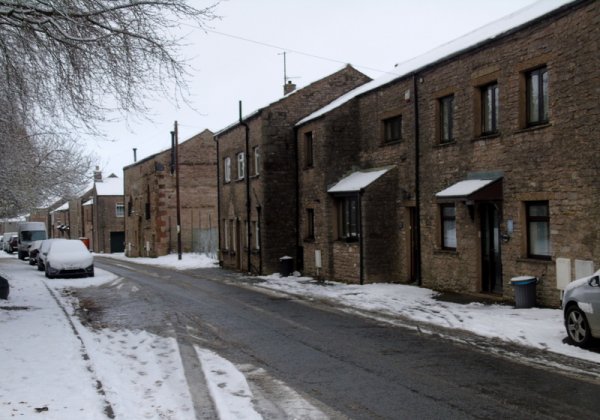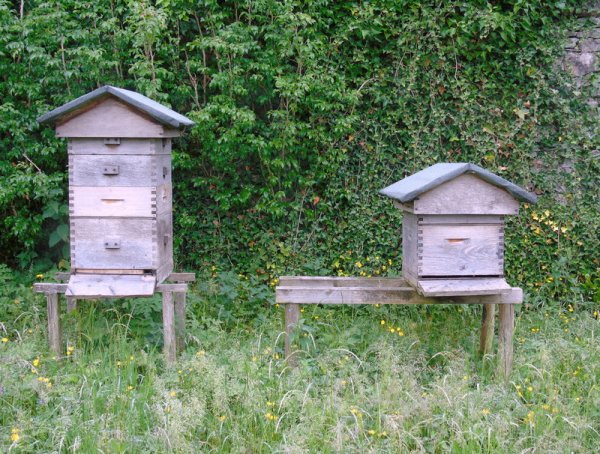Feb 10th 2022, 11:38
Blog - 10th February 2022
In this blog I consider the cost of living crisis – especially the increased energy prices; the impact in the North of England and on pensioners; the effect on service charges; and whether the government’s response is appropriate. Finally I look at how Brexit is a threat to bees!
The cost of living crisis is very much in the news. Inflation increased to 5.4% in December and Ofgem have announced a 54% increase in the energy price cap.
Ed Matthew, campaigns director at the climate crisis thinktank E3G, said:
“As energy bills go through the roof due to the rocketing cost of gas, it is worth remembering that the most energy-leaking housing stock in western Europe is in the north of England. Fixing it would slash energy bills and emissions whilst boosting the economy of the north. Failing to put that at the heart of this levelling up strategy is a spectacular own goal.”

Houses in Kirkby Stephen in Cumbria where energy costs are high
The Eden Valley in Cumbria, where I live, is one of the areas worst hit by the increase in energy prices. According to the Office for National Statistics the median estimated annual energy cost per dwelling in the district was £1,056 in 2021, the highest in mainland England. However, these costs are expected to increase by £940 to £1,996 in 2022, an increase of 89%.
Councillor Judith Derbyshire (Liberal Democrat), Cabinet member for Housing & Health at Eden District Council, when asked about increasing energy costs, said that:
“We are very conscious of it, and it is one of the reasons Eden District Council are doing the Green Homes Grant Local Authority Delivery scheme, improving insulation and heating systems in homes in Eden, reducing fuel poverty, reducing carbon emissions, and helping people to be healthier in their homes. We are widening it out to become Better Homes Eden, a Homes Improvement Agency, to look at wider issues such as Disabled Facilities Grants and other improvements. At present the funding is mainly for owner occupiers on low incomes and in poorly insulated houses, but it is widening out to other homes.”
I am sure that Eden District Council is doing all that it can to help, but in the face of such large increases in energy prices they will not be able to prevent an increase in fuel poverty.
Amidst all this news comes a worrying report from Age UK that finds that:
One 69-year-old woman told Age UK that:
“I am currently in bed keeping warm today as it’s so cold and I can’t afford to have my heating on for the whole day. I’m reduced to showering on alternate days, which I hate, and I’m eating food that’s microwaveable to avoid heating my oven.”
Caroline Abrahams, charity director at Age UK, said that:
“Many older people are reliant on the state pension as their main source of income and simply do not have the flex in their finances to cope with such enormous price rises. At Age UK, we are being contacted every day by desperate older people in this position, people for whom there are only ‘bad choices’ – ration your energy use, cut back on food or other essentials, or go into debt.”
Those who will suffer most from increased fuel bills are those on low incomes who already spend a higher proportion of their income on fuel. This includes those in work whose salaries and wages are low, those on Universal Credit, the disabled and pensioners. It appears to me that the best way to help these groups is not to introduce gimmicky discounts that benefit everyone in society but to increase the incomes of these groups. This could be done by increasing the minimum wage, universal credit, disability allowances and old age pensions.
However, the government has gone in the opposite direction by abolishing the ‘triple lock’ that was introduced by the coalition government in 2010. This used to guarantee that the old age pension would increase in line with inflation, average earnings, or 2.5% whichever was the highest. This year the government has decided not to pay the ‘triple lock’ because they could not afford to. It’s a pity that pensioners don’t have the option of not paying their fuel bills because they can’t afford to!

Communal area in a local authority sheltered housing scheme. Costs of heating and lighting will increase.
Several of my local authority and housing association clients are concerned about the impact that increasing energy bills will have on their tenants’ wellbeing and their ability to pay their rent and service charges. Within this there is a concern that landlords will have to increase their service charges to recover fully the costs of providing energy to tenanted properties and providing power, heating and lighting in communal areas.
Some are considering not increasing their service charges and under-recovering on their fuel costs as a way of protecting tenants from unaffordable costs. However, such an approach would simply shift the increased fuel costs onto tenants who do not pay service charges with the result that less money would be available for repairs and maintenance.
Rishi Sunak, the Chancellor of the Exchequer, has announced that every household will get a one-off repayable £200 discount on their bills in October and a £150 rebate on council tax. However, charities and thinktanks have raised concerns that using council tax as a means to reduce the rising cost of energy is inefficient and unfair, particularly for those who do not own their own homes.
Dame Meg Hillier MP (Labour, Hackney South) said that:
“The housing situation isn’t as simple as Whitehall thinks it is… They’re using the council tax account as a way of getting money to people, so if you’re not paying council tax directly or don’t have an account, presumably you are not getting any money… I have a lot of houses in multiple occupation in my constituency. If the landlord pays [the council tax], do they then take it off the tenants’ rent?
“People will still be having to make hard choices… They are already shopping around to save money on a pint of milk… If that is the margin you are working on, £150 off a near £700 rise in energy bills is not going to cut it.”
It is often said that ‘It's an ill wind that blows no one any good’. The increased fuel prices are no exception. While households and businesses brace themselves for increased costs, utility companies are reporting increased profits. Clearly not all the revenues from the price increases are needed to meet the increased cost of supplies and some of them are being used to enhance the income of shareholders. Some have called for an increase in taxation on energy companies but the government is resisting these demands.
So, other than budgeting for increased energy costs and providing limited financial assistance to households in fuel poverty, there appears to be little that councils and housing associations can do to mitigate the problem.
Meanwhile, the UK Government has authorised the use of a banned bee-killing pesticide on crops across England, just weeks after passing the new Environment Act. The deadly neonicotinoid, or 'neonic', called ‘thiamethoxam’ was banned by the European Union in 2018 because of the wide-spread harm it causes to wildlife – especially bees - but because of Brexit it can now be legalised in Britain.

Bee Hives at Sizergh Castle (National Trust) in Cumbria
Environmental groups consider that this decision is not based on science and goes against its commitments to tackle the climate and nature crisis as it:
It appears to me that this is one of the key things that Brexit is about – undermining environmental standards in an effort to reduce costs.
My next webinars are as follows. Please click on the links for more information: